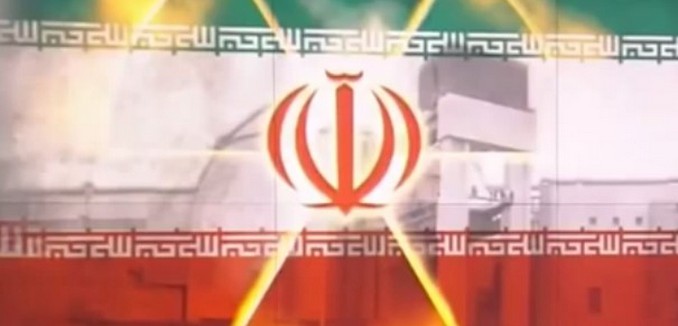A new poll – conducted on behalf of the news websites Al-Masdar.net and TheTower.org, and released this afternoon after it was presented to reporters by pollster Frank Luntz – concludes that lopsided majorities of Americans from both political parties overwhelmingly favor deepening sanctions against the Iranian government, regardless of current negotiations.
The Luntz Global survey of 900 likely voters was conducted Dec. 7-9. It was the first poll conducted jointly by the Arabic-language Al-Masdar.net and TheTower.org, two fast-growing websites covering news of the Middle East. Newsweek/Daily Beast recently called TheTower.org “an indispensable new English-language source on the Middle East.”
The findings show overwhelming distrust of Iran across demographic and political leanings, with American voters directing their lawmakers accordingly. Whether they are younger Obama voters or older Romney voters, Americans want their lawmakers to insist on a non-nuclear Iran, and they want to increase sanctions to ensure those objectives are met.
The results are the latest to show that American skepticism toward engagement with the Islamic republic is hardening, after an initial period – following the announcement of the interim Geneva deal – in which near-pluralities of voters described themselves as undecided on a range of issues. In late November a Reuters/Ipsos poll found that one-third of Americans were unsure on questions such as whether they supported the Geneva deal and whether Iran’s nuclear program was being developed for peaceful purposes.
By early December sentiments began to harden. A USA TODAY/Pew Research Center poll recently found that those who have heard about the deal distrusted Iranian leaders to negotiate seriously over Tehran’s nuclear program by 2-1. The USA TODAY/Pew Research Center Poll poll was conducted between Dec 3-8.
The Al-Masdar.net/TheTower.org poll began a day earlier and ended a day later than that poll.
In a memo available – downloadable, along with the poll results, here – Luntz describes four overarching themes that emerged from the data.
Americans fear Iran more than they fear all the other Middle Eastern antagonists combined and are universally skeptical about Iranian intentions. The policies they want lawmakers to pursue follow accordingly. Voters want negotiations with accountability, or more precisely, they want sanctions to remain in place or be strengthened as the administration negotiates. They want Iran’s capacity to develop nuclear weapons limited both while a deal is being negotiated and, certainly, in the context of a comprehensive deal.
Fully 77% of Democrats and a near unanimous 96% of Republicans would rather vote for a senator who favors sanctions, including “increased pressure on Iran until Iran accepts a final agreement that removes their ability to build nuclear weapons.” Only 14% of voters would prefer a senator who wants to reduce pressure on Iran in the context of negotiations.
In fact, Americans overwhelmingly prefer upping sanctions on Iran and reject reducing pressure, with or without negotiations.
Asked broadly what action the United States should take against Iran to eliminate its ability to make nuclear weapons, Americans chose “further economic sanctions and financial pressure” by huge margins (43%) over “more extensive negotiations … while reducing the current financial pressure” (19%).
Drilling down into how Americans think negotiations should be conducted, a broad majority (77%) supported continuing to negotiate “while imposing sanctions and increas[ing] financial pressure and sanctions.” Only 23% supported continuing to negotiate “while reducing sanctions and financial pressure on Iran.”
Americans remain consistently wary of Iran, and consider the country the greatest menace to U.S. interests in the Middle East.
Fully half of voters (49%) picked Iran as the greatest threat to the United States, more than Iraq (15%), Pakistan (13%), Afghanistan (12%), and Syria (9%) combined. The result held across all age levels, education divisions, and partisan subgroups.
Americans also remain overwhelmingly skeptical regarding Iranian intentions.
Just 7% trust the Iranian claim that their nuclear program is exclusively peaceful, while 77% are afraid of Iran’s intentions. 86% of voters – a 78% among Democrats and 95% among Republicans – think Iran will break its promises during the negotiation, while only 14% say they will keep them. Only 16% believe Iran is “negotiating in good faith and will eventually give up their ability to make nuclear weapons.” The vast majority (84%) think Iran is instead using negotiations “to stall as they continue to develop their ability to make nuclear weapons.”
Regarding where negotiations should end up, Americans very bluntly don’t want Iran to have substantial nuclear capacity now or ever. 86% overall – 81% of Democrats and 91% of Republicans – think the United States should prohibit Iran from possessing enrichment capabilities.
[Photo: LatinusnewsHD / YouTube]




